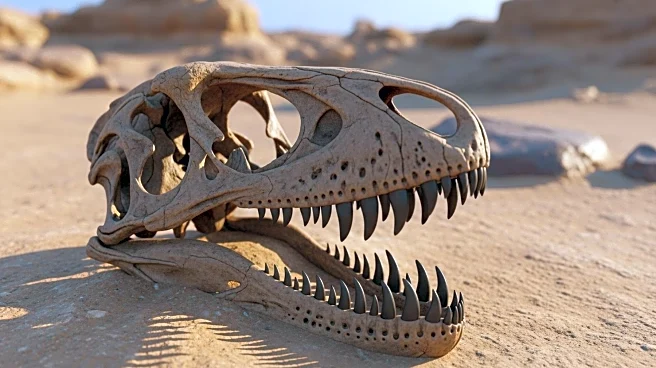What is the story about?
What's Happening?
Scientists in Argentina have discovered a new dinosaur species, Joaquinraptor, believed to be at least 70 million years old. The dinosaur was found in Patagonia and is thought to have lived toward the end of the Cretaceous Period. The discovery includes part of the animal's skull and jaw, along with other body parts. Notably, the dinosaur was found with a crocodile's arm bone in its mouth, suggesting its diet included crocodiles. The bones are currently held at the National University of Patagonia San Juan Bosco, with potential plans for exhibition.
Why It's Important?
The discovery of Joaquinraptor provides valuable insights into the diversity and ecological interactions of dinosaurs during the Cretaceous Period. Understanding the diet and behavior of this species contributes to the broader knowledge of prehistoric ecosystems and predator-prey dynamics. The findings also highlight the rich paleontological resources in Patagonia, offering opportunities for further research and exploration of ancient life in the region.
What's Next?
Studies are underway to determine how Joaquinraptor lived and what ultimately led to its death. Researchers are considering the possibility of exhibiting the dinosaur's remains, which could enhance public understanding and appreciation of paleontological discoveries. Continued exploration of the dig site may yield additional significant finds, contributing to the understanding of dinosaur diversity in South America.














